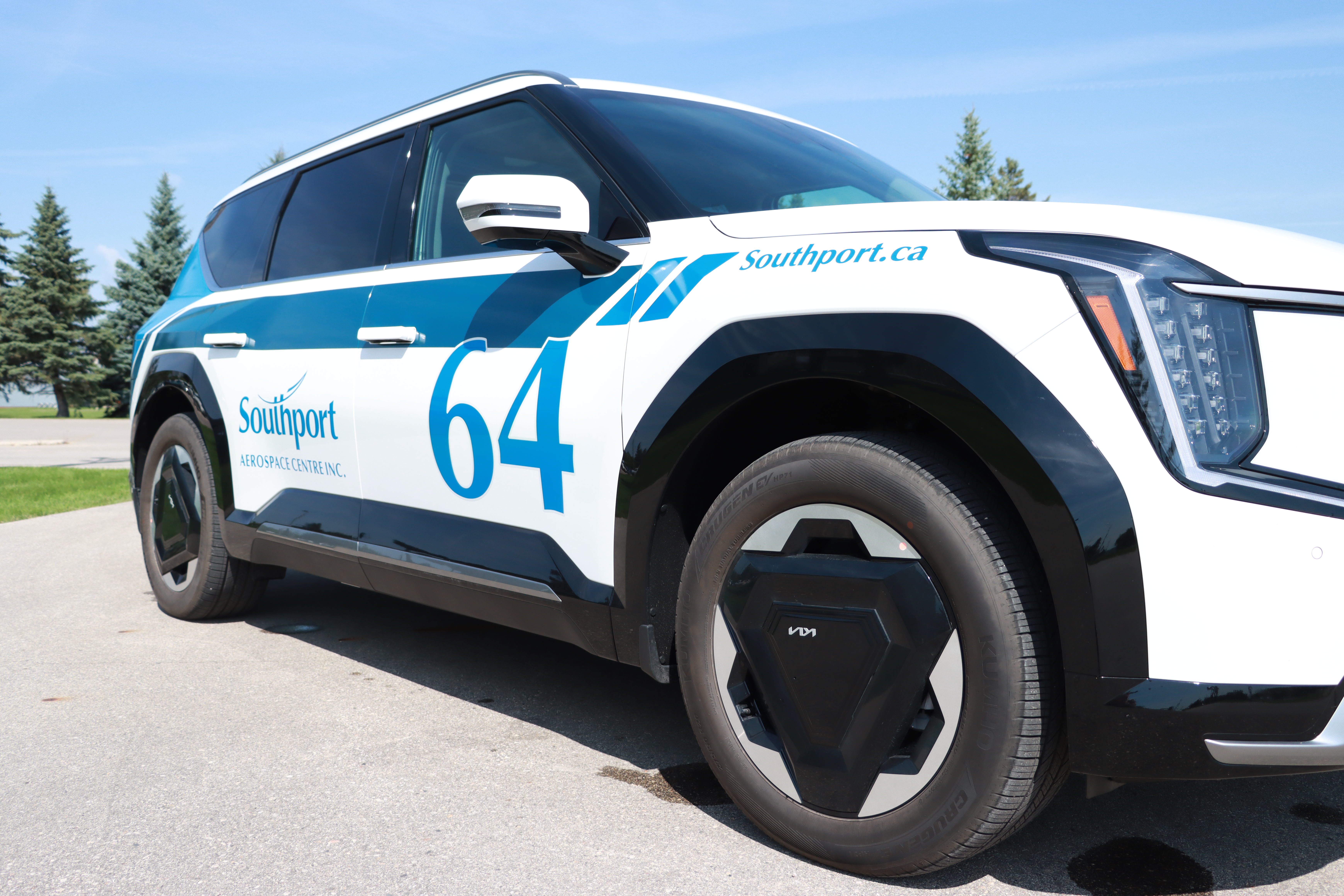Southport Aerospace is shifting into a greener gear, actively replacing its traditional gasoline-powered fleet with electric vehicles, a move championed by its existing solar infrastructure and a commitment to sustainability.
The company’s newest addition is a Kia EV9, a premium electric SUV that joins three other EVs already in service.
Dean Rennie, manager of business development at Southport, explains the vehicle’s role, saying, "This is the newest addition to our fleet. We just got it about a month ago. This one is kind of for the administrative staff to use to shuttle people around and show off our site, go to conferences and things."
The strategic transition began in 2021, particularly in the wake of the Liberal Government's push to stop all gas-powered vehicle sales in Canada by the year 2030.
While the initial plan to acquire an electric Ford F-150 Lightning was delayed, it kicked off an annual replacement strategy.
![]()
"Every year since we've been replacing one of the gas-powered ones with an electric one," Rennie says.
Powering the fleet with the sun
A key component making this shift feasible is Southport’s investment in renewable energy. The construction of their new office building included a bank of solar panels on a nearby picnic shelter, which became operational in June.
The solar array is already producing a significant surplus of energy dedicated to fleet charging.
"We are ahead of the game by about 35%. So we're getting more, 35% more electricity currently from the solar panels than we require for charging," Rennie states.
He acknowledges that winter will present a challenge with higher charging demands and lower solar generation, but notes the project is "easily scalable" with the potential for more panels to maintain their net-zero charging goal.
Environmental impact and future plans
The environmental and economic benefits are already being realized. The switch to electric has significantly reduced the organization's fuel consumption and carbon emissions.
"We've saved about 2,600 litres of gasoline already this year just by making this switch," Rennie says.
To visualize, that volume is enough to fill the fuel tanks of over 50 mid-sized sedans to capacity.
Looking ahead, Southport is considering ways to enhance its energy security and efficiency further, including the potential for battery storage.
"We are certainly hoping and looking to the future about being able to store electricity or power from renewable energy sources," Rennie notes, adding that, "We understand that energy security is important, and we want to make sure that we're using it as efficiently as we can."
For Rennie and Southport, the benefits are clear, with Rennie explaining, "It's a really good project for Southport. We've had the ability to make this transition to reduce our carbon footprint, and it's kind of nice to be driving around in a vehicle where you know you're not emitting any pollution into the atmosphere."
For now Rennie and Southport Aerospace are happy to be making a positive impact on the environment and their community, one EV at a time.
